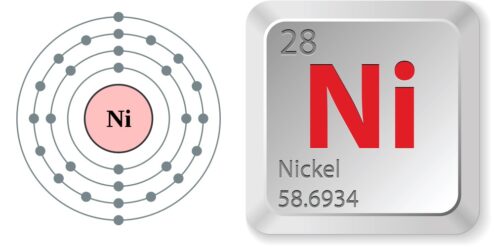Introduzione: Nickel is a naturally occurring element that can be found in various foods, water, soil, and air. It is also present in many everyday items such as jewelry, coins, and stainless steel products. While nickel plays a crucial role in various biological processes, excessive exposure can lead to health problems. This article will explore the role of nickel in the human body, its biological functions, the impact of nickel exposure on human health, nickel allergy, its link to chronic diseases, and how to prevent and manage nickel toxicity.
1. Understanding the Role of Nickel in the Human Body
Nickel is a trace element that is essential for the normal functioning of the human body. It plays a key role in the production of red blood cells and is involved in the metabolism of proteins and carbohydrates. Nickel also contributes to the structural and functional integrity of the cell membrane. However, the body only needs a small amount of nickel to carry out these functions. Too much nickel can be harmful and can lead to a variety of health problems.
2. Biological Functions of Nickel: What Research Tells Us
Research has shown that nickel is involved in several biological processes. It acts as a cofactor for certain enzymes, which are proteins that speed up chemical reactions in the body. Nickel is also involved in the synthesis of hormones and helps to maintain the balance of other essential elements such as iron and zinc. Furthermore, studies have suggested that nickel may play a role in DNA synthesis and repair, as well as in the regulation of gene expression.
3. The Impact of Nickel Exposure on Human Health
Excessive exposure to nickel can have a negative impact on human health. High levels of nickel can interfere with the body’s absorption of other essential nutrients, leading to deficiencies. It can also cause damage to the lungs and kidneys, and can affect the nervous system. Long-term exposure to high levels of nickel has been linked to an increased risk of lung and nasal cancer. In addition, some people may develop an allergic reaction to nickel, which can cause skin rashes and other symptoms.
4. Nickel Allergy: Causes, Symptoms, and Treatment
Nickel allergy is a common form of contact dermatitis, which is an inflammation of the skin caused by direct contact with an allergen. Symptoms of nickel allergy include redness, itching, swelling, and blistering of the skin. In severe cases, nickel allergy can cause difficulty breathing and chest tightness. The best treatment for nickel allergy is to avoid contact with nickel-containing items. If contact cannot be avoided, topical creams and oral antihistamines can help to relieve symptoms.
5. The Link Between Nickel and Chronic Diseases
Several studies have suggested a link between nickel exposure and chronic diseases such as heart disease and diabetes. High levels of nickel in the body can cause oxidative stress, which is a condition characterized by an imbalance between the production of free radicals and the body’s ability to counteract their harmful effects. Oxidative stress can lead to inflammation and damage to cells and tissues, which are key factors in the development of chronic diseases.
6. Preventing and Managing Nickel Toxicity: An Overview
Preventing nickel toxicity involves limiting exposure to nickel. This can be achieved by avoiding nickel-containing products, using nickel-free alternatives, and maintaining a balanced diet. If nickel toxicity is suspected, a healthcare provider can perform tests to measure the levels of nickel in the body. Treatment for nickel toxicity usually involves removing the source of exposure and providing supportive care to manage symptoms. In severe cases, chelation therapy may be used to remove excess nickel from the body.
Conclusioni: Nickel plays a crucial role in various biological processes, but excessive exposure can lead to health problems. It is therefore important to understand the role of nickel in the human body and to take steps to limit exposure. If you suspect that you have been exposed to high levels of nickel, it is important to seek medical advice.
Per approfondire:
- World Health Organization: Nickel in Drinking-water: This document provides detailed information on the health effects of nickel exposure and guidelines for nickel levels in drinking water.
- National Institute for Occupational Safety and Health: Nickel: This page provides information on occupational exposure to nickel and measures to prevent nickel toxicity in the workplace.
- American Academy of Dermatology: Nickel allergy: This page provides information on the causes, symptoms, and treatment of nickel allergy.
- National Center for Biotechnology Information: Nickel and its surprising impact in nature: This book chapter provides an overview of the biological functions of nickel and its impact on human health.
- Agency for Toxic Substances and Disease Registry: Toxicological Profile for Nickel: This document provides comprehensive information on the toxicological properties of nickel and its effects on human health.


